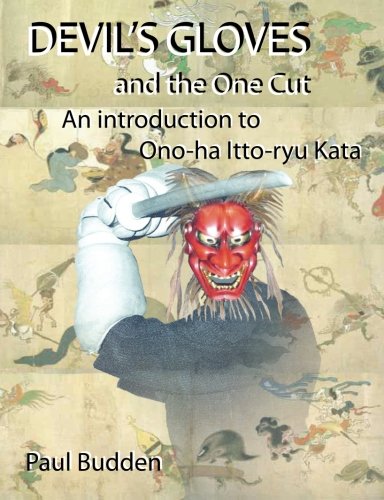Devil's Gloves and the One Cut: An introduction to Ono Ha Itto Ryu Kata Book by Paul Budden
The ancient art of Kendo has been studied and practiced throughout Japan for centuries and has along with similar Japanese cultures spread worldwide. Thus the appeal of this unique activity is therefore no longer limited to its homeland, this may be attributed to the plain and simple fact that Kendo can actually be understood and put into practice anywhere, by anyone and at any time or place. This is the first study outside of Japan and the first in English, covering a brief history, the philosophical aspects and technical elements that make up this classical school of swordsmanship dating from the 17th century known as Ono ha Itto ryu. It will be of specific interest to those who practice Kendo, and also to the numerous enthusiasts of all Far Eastern martial arts.
About the author:
Paul Budden was born in 1949 in Cheltenham, England. Although now semi-retired, he continues to assist in running an established international 'Design and Build' exhibition company' more for pleasure' now than a profession.
Some 44 years ago, he began to practise and study the Japanese Martial Art of kendo. Dedication and perseverance resulted in his being selected as a member of the British team that took bronze in 1987 at the European Kendo Championships in Malmo, Sweden. His initial interest in kendo became a passion and led to his writing seven books, initially about the technical aspects but later about its history.
Paul was the Official Announcer at European Kendo Championships for the European Kendo Federation for over 20 years. He was Co-Organising Director at the 12th World Kendo Championships in Glasgow, the International Kendo Enbu Taikai in Edinburgh, and a former High grade and Bucho for the British Kendo Association. He was the Technical Director of the Maltese Kendo Federation from its inauguration in 2010 and President up to 2020.
Tenacious investigatory skills and meticulous attention to detail when discerning and recording facts have confirmed his standing as a first-rate researcher and recognised authority on British, European and International kendo history.
A high-level international kendo instructor - Kyoshi 7-dan, he believes very strongly in maintaining the traditional interpretation of kendo; he is dedicated to the classical practice of koryu (Historic schools) and the philosophy that kendo personifies. Having visited Japan on numerous occasions over many years for study and practise in a continuing quest for knowledge and improvement, he states:
"The ultimate may be unattainable, but the journey is educational and enjoyable."
98 pages
Couldn't load pickup availability


